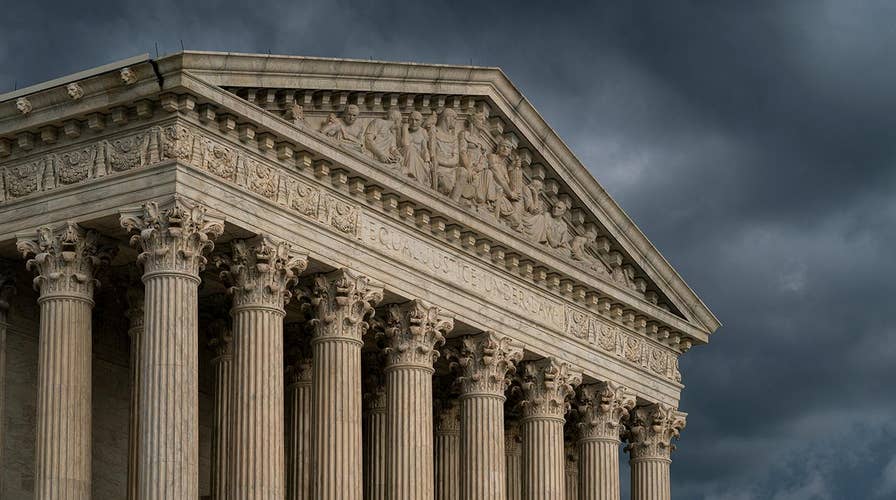Supreme Court issues ruling on gerrymandering
In a 5-4 decision, the Supreme Court says federal courts have no role in policing partisan redistricting; David Spunt reports.
One of the hardest tasks of a judge is not to take action when faced with a serious problem the law doesn’t address. That is the reason courts are frequently tempted to legislate from the bench by inventing new constitutional rules or rewriting laws they don’t think work properly. But there are many problems that are not appropriate for judicial review and that our Constitution commits to the political process.
Thursday a bare majority of five justices – Chief Justice Roberts joined by Justices Thomas, Alito, Gorsuch, and Kavanaugh – had the integrity to admit that drawing voting district lines is precisely one of those areas that the Constitution leaves in the hands of legislators, not judges.
The challengers in Thursday’s cases from North Carolina and Maryland were from different political parties, but each group felt the districts in their state, drawn by the opposing party, were done to maximize political advantage.
Those concerns aren’t new. Chief Justice Roberts in his majority opinion traces the history of partisan gerrymandering back even before the Revolutionary War. With those fights in mind, the Framers intentionally designed the Constitution to grant state legislatures the authority to regulate elections, while giving the United States Congress to make or change regulations if necessary. They never committed that power to the courts.
Of course, the Framers anticipated that there would still be conflict over drawing district lines, and it arose quickly. After all, the word “gerrymander” itself refers to Elbridge Gerry, a signer of the Declaration of Independence and member of the Constitutional Convention. As governor of Massachusetts, he approved maps in 1812 that were criticized for their resemblance to a salamander, inspiring the new term.
For over 200 years, legislators have been tasked with drawing district lines, and there have been partisan complaints for just as long. Some states have addressed the issue by passing their own laws or constitutional amendments regulating how districts are drawn, which is an effective practical solution. But the Supreme Court cannot invent a standard out of whole cloth to govern redistricting questions – that is a task committed by the Constitution to the state and federal legislatures.
As frustrating as the partisan rancor is, a judicial response would do even more damage to our political system. As the chief justice observed, “What the appellees and dissent seek is an unprecedented expansion of judicial power… that would not be into just any area of controversy, but into one of the most intensely partisan aspects of American political life.”
It’s hard to imagine something more damaging to the Court’s attempts to stay out of the political fray. Even more concerning, it would open the door to renewed litigation with practically every new voting map, state and federal. “Consideration of the impact of today’s ruling on democratic principles cannot ignore the effect of the unelected and politically unaccountable branch of the Federal Government assuming such an extraordinary and unprecedented role.”
Justice Kagan’s dissent almost explicitly acknowledges that the four dissenters are willing to take legislating into their own hands. She worries that, though Congress could choose to further regulate district line-drawing to alleviate gerrymandering, it hasn’t done so. Of one bill that has been repeatedly proposed over the last decade, she laments that it “might be reintroduced until the end of time. Because what all these bills have in common is that they are not laws.”
Precisely. In America, when our elected representatives choose not to pass a bill, that doesn’t authorize the Supreme Court to do so.
CLICK HERE TO GET THE FOX NEWS APP
While Courts do have a constitutional role in ensuring elections are free of racial discrimination, the same can’t be said of political jockeying. Nothing in the Constitution forbids political and even partisan forces from playing a role in elections; indeed they are virtually unavoidable. By trying to police the political process, courts will only be drawn into it.
Thursday's decision is a victory for the Constitution. But as long as four justices are still willing to abandon their judicial roles, the battle to defend the rule of law will continue.

